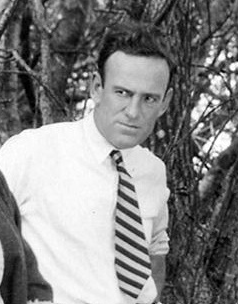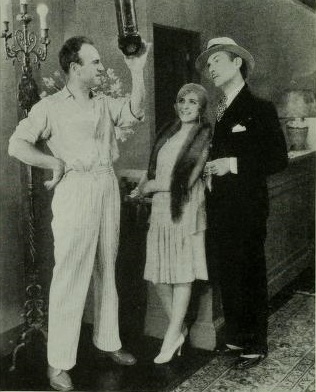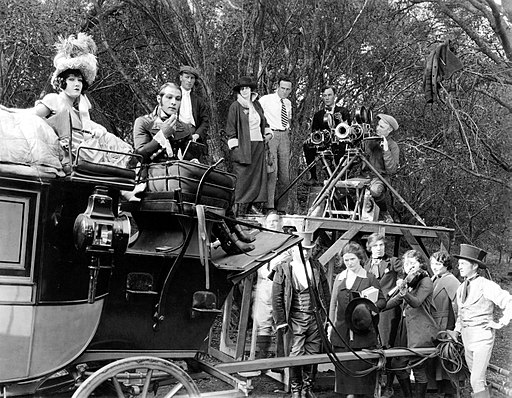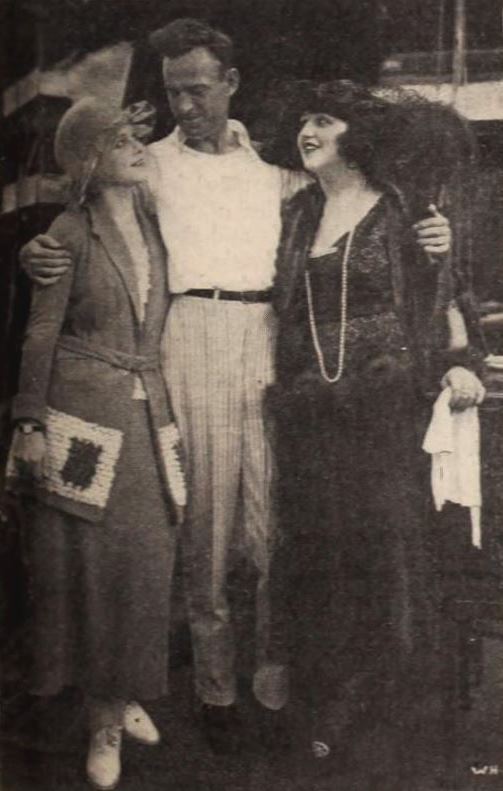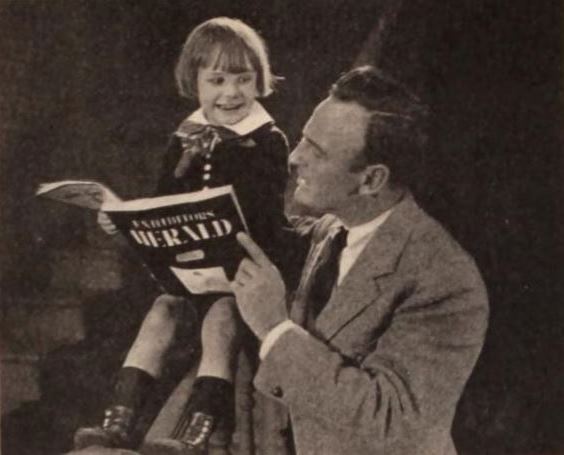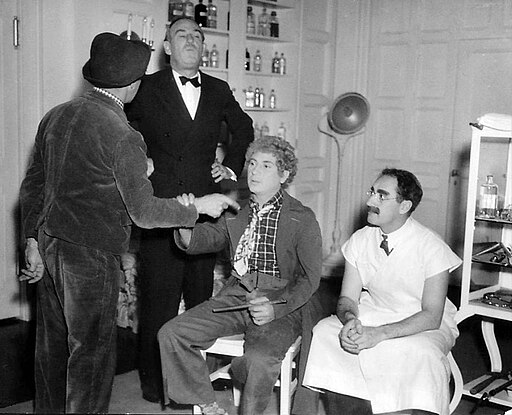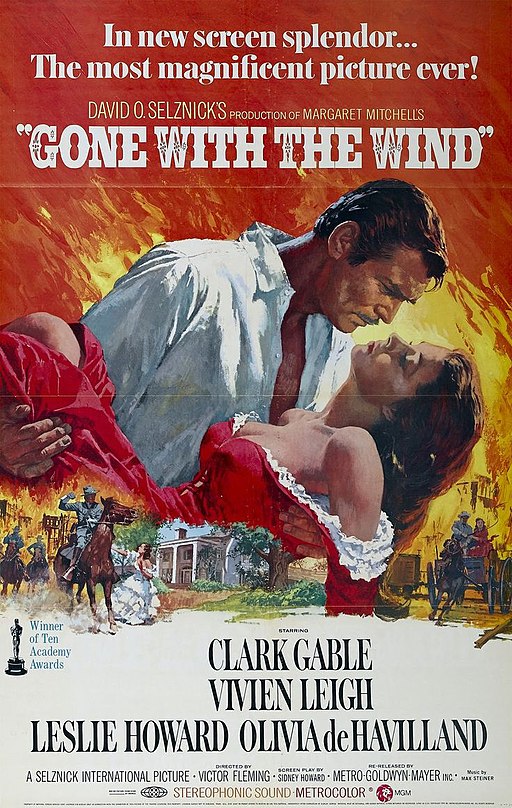Sam Wood
back| Full Name | Samuel Grosvenor Wood |
| Born | July 10, 1883 |
| Birthplace | Philadelphia, Pennsylvania, USA |
| Died | September 22, 1949 |
| Buried | Forest Lawn Memorial Park, Glendale, California, USA |
| Married to | Clara L. Roush (married in 1908) |
| Children | Jeane Wood and K.T. Stevens (Katherine Wood) |
| Notable films | Goodbye, Mr. Chips (1939) - The Pride of the Yankees (1942) - For Whom the Bell Tolls (1943) - Kitty Foyle (1940) - A Night at the opera (1935) - Kings Row (1942) |
Sam Wood
The Craftsman of Hollywood’s Golden Age
Sam Wood's career spanned silent films and the sound era, and he was known for his versatility in handling a variety of genres, from comedies and dramas to biopics and literary adaptations. He was nominated for the Academy Award for Best Director three times but never won. His legacy remains significant in the history of American cinema.
Related
Sam Wood (1883 – 1949)
Biography and Overview of his Directing Career
Samuel Grosvenor Wood was born on July 10, 1883, in Philadelphia, Pennsylvania. Not much is widely known about his early life and education. What stands out, however, is his transition from a relatively humble beginning to one of Hollywood's most respected directors.
In 1908, Sam Wood married Clara L. Roush. The couple had two daughters, Jeane Wood and K.T. Stevens. K.T. Stevens would go on to have her own acting career, inheriting a passion for cinema from her father.
Career Beginnings Wood's journey into the world of cinema was somewhat serendipitous. He started his career as an office boy at the Lubin Manufacturing Company, a film company based in Philadelphia. His drive and determination saw him rise through the ranks, eventually becoming an assistant director.
In the 1920s, Wood transitioned into a full-fledged director. This period was marked by his work on silent films, where he honed his directorial skills and developed a style that would later define his work in the sound era.
Hollywood Success Sam Wood's career took a significant turn with the advent of sound in films. He directed a variety of genres, showcasing an impressive range. His work during Hollywood's Golden Age is particularly notable.
Some of his most important movies include:
- "Goodbye, Mr. Chips" (1939): A touching drama that earned him an Academy Award nomination for Best Director.
- "The Pride of the Yankees" (1942): A biopic of the famed baseball player Lou Gehrig, which was a critical and commercial success.
- "For Whom the Bell Tolls" (1943): An adaptation of Ernest Hemingway's novel, showcasing his ability to handle complex literary adaptations.
- "Kitty Foyle" (1940): A film that won Ginger Rogers an Academy Award for Best Actress.
- "A Night at the Opera" (1935): A comedy classic with the Marx Brothers, highlighting Wood's versatility as a director.
- "Kings Row" (1942): A film known for its bold narrative and Ronald Reagan's performance, often considered one of the best of his career.
Wood was known for his meticulous work ethic and his ability to bring out the best in his actors. Despite his success, he never won an Oscar, although he was nominated several times.
Later Years and Death In his later years, Wood's health began to decline.
He suffered a heart attack and passed away on September 22, 1949, in Hollywood, California. His death marked the end of an illustrious career that significantly impacted American cinema.
Legacy Sam Wood's legacy is etched in the annals of Hollywood history. He was posthumously awarded a star on the Hollywood Walk of Fame, commemorating his contributions to the film industry. His films, particularly those from the 1930s and 1940s, are remembered for their storytelling, craftsmanship, and the performances he elicited from actors.
Wood's ability to navigate various genres, from romantic dramas to comedies and biographical films, showcases his versatility as a director. His work on "Goodbye, Mr. Chips" and "The Pride of the Yankees" remains exemplary in Hollywood's Golden Age, often studied for their narrative structure and character development.
Moreover, Wood's influence extended beyond his own films. He was instrumental in shaping the careers of many actors and contributed significantly to the development of narrative cinema. His approach to directing, marked by a blend of meticulous planning and a keen understanding of storytelling, influenced generations of filmmakers.
In summary, Sam Wood's career was marked by a rich variety of films that contributed significantly to the development of Hollywood cinema. His journey from an office boy to one of the most respected directors of his time is a testament to his talent, perseverance, and impact on the world of film.
Excerpt from Kitty Foyle, Directed by Sam Wood:
Sam Wood’s Directing Style:
Sam Wood's directing style was characterized by several key elements that set him apart as a versatile and skilled filmmaker during Hollywood's Golden Age. Here's an analysis of his style:
- Meticulous Craftsmanship: Wood was known for his meticulous approach to filmmaking. He paid close attention to the details of production, from the script to the final edit. This attention to detail ensured that his films were well-crafted and polished.
- Adaptability Across Genres: One of the most notable aspects of Wood's career was his ability to adapt to various genres. He directed comedies, dramas, romances, and even sports films with equal proficiency. This adaptability showcased his deep understanding of different narrative forms and audience expectations.
- Actor's Director: Wood had a reputation for being an actor's director. He was known for his ability to work closely with actors, guiding them to deliver performances that were both natural and compelling. This skill was particularly evident in films like "Goodbye, Mr. Chips" and "Kitty Foyle," where the lead performances are central to the film's success.
- Classical Storytelling: Wood's films often embodied the classical Hollywood narrative style. They featured clear, linear storytelling with a strong emphasis on character development and plot. This approach made his films accessible and engaging to a wide audience.
- Emphasis on Human Emotion: Many of Wood's films, particularly his dramas, focused on human emotions and relationships. He had a knack for exploring the depths of his characters' inner lives, making his films emotionally resonant.
- Technical Competence: While not known for groundbreaking visual techniques, Wood's films demonstrated a high level of technical competence. He used the camera effectively to tell the story, relying on solid, traditional filming techniques rather than visual experimentation.
- Collaboration with Prominent Writers and Actors: Wood often collaborated with some of the best writers and actors of his time. This collaboration resulted in films that not only showcased his directing skills but were also enriched by top-notch performances and writing.
- Balancing Entertainment and Substance: Even in his more light-hearted films like the Marx Brothers comedies, Wood was able to balance entertainment with a degree of substance. His films were not just about making the audience laugh or cry; they often contained themes and messages that resonated on a deeper level.
Awards and Recognition:
Sam Wood, despite his significant contributions to Hollywood and his successful career, did not accumulate a vast array of awards and nominations compared to some of his contemporaries. However, he did receive notable recognition, particularly from the Academy Awards. Here's an overview:
Academy Awards (Oscars)
- 1940: Nominated for Best Director for "Goodbye, Mr. Chips."
- 1941: Nominated for Best Director for "Kitty Foyle."
- 1943: Nominated for Best Director for "Kings Row."
These nominations reflect the high regard the industry had for his work, particularly in the realm of directing. "Goodbye, Mr. Chips" and "Kitty Foyle" were both significant films of their time, with "Goodbye, Mr. Chips" being a sentimental favorite and "Kitty Foyle" notable for Ginger Rogers' Academy Award-winning performance. "Kings Row," remembered today partly for Ronald Reagan's performance, was a darker film that stood out in Wood's filmography for its dramatic intensity.
Other Recognitions
- Sam Wood received a star on the Hollywood Walk of Fame for his contributions to the motion picture industry. This star is a testament to his lasting impact on Hollywood and his status as a respected director during the Golden Age of Cinema.
Movies Directed by Sam Wood:
1920
- "Double Speed": A silent romantic comedy about a young man using his speedster car to win a girl's heart.
- "The Dancin' Fool": A silent comedy revolving around dance hall antics.
- "Sick Abed": A comedy where a man fakes illness to avoid a vacation with his in-laws.
- "What's Your Hurry?": A silent film whose details are less known.
- "A City Sparrow": A drama about a country girl moving to the city and facing its challenges.
1921
- "Her First Elopement": A comedy about a young girl's misadventures while eloping.
- "Peck's Bad Boy": Based on the famous character, it's a comedy about a mischievous boy's antics.
- "The Snob": A drama about a small town girl who, after becoming wealthy, shuns her former lover for a baron.
1922
- "Her Husband's Trademark": A drama about a woman who discovers her husband's infidelity.
- "Her Gilded Cage": A drama about a woman choosing between love and luxury.
- "Beyond the Rocks": A romantic drama starring Rudolph Valentino and Gloria Swanson, about a woman who marries for money but falls for another man.
- "The Impossible Mrs. Bellew": A drama about a woman fighting to regain custody of her son.
1923
- "Bluebeard's Eighth Wife": A silent romantic comedy about a woman who discovers she's the eighth wife of a Bluebeard-like figure.
- "His Children's Children": A drama about a wealthy man's spoiled grandchildren.
- "The Next Corner": A romantic drama featuring forbidden love and a tragic twist.
1924
- "Bluff": A silent film with limited available information.
1925
- "The Mine with the Iron Door": A romantic adventure about a gold mine and a young orphan in the Arizona desert.
- "The Re-Creation of Brian Kent": A drama about a novelist reforming a criminal.
1926
- "Rookies": A comedy about two friends in the National Guard.
1927
- "One Minute to Play": A sports drama about a college football player facing challenges on and off the field.
- "The Fair Co-Ed": A college-based comedy about a girl who joins the basketball team to be near the coach.
- "The Latest from Paris": A comedy about a woman pretending to be a French dress designer.
1928
- "Telling the World": A drama about a newspaper reporter who falls for a circus performer.
- "So This Is College": A college musical comedy focusing on friendship and rivalry.
- "The Latest from Paris": A comedy about an American woman posing as a French fashion designer.
- "A Lady of Chance": A silent film about a clever con artist.
1929
- "It's a Great Life": A comedy focusing on the trials and tribulations of two sisters.
1930
- "Way for a Sailor": A romantic drama about a sailor adjusting to life on land for the love of a woman.
- "The Girl Said No": A romantic comedy about a young man trying to win over
a woman who consistently rebuffs his advances.
- "They Learned About Women": A musical sports comedy about two baseball players who become vaudeville performers.
1931
- "A Tailor Made Man": A comedy about a tailor's assistant who impersonates a wealthy aristocrat.
- "The Man in Possession": A romantic comedy about a bailiff falling in love with the debtor he's sent to pursue.
- "New Adventures of Get Rich Quick Wallingford": A comedy about two con men trying to strike it rich.
1932
- "Huddle": A romantic drama set against the backdrop of college football, focusing on the son of Italian immigrants.
1933
- "The Barbarian" (aka "Man of the Nile"): A romantic drama set in Egypt, involving a love triangle and cultural clashes.
- "Hold Your Man": A romantic drama about a woman in love with a criminal, showcasing the gritty reality of urban life.
- "Christopher Bean": A posthumously released drama about a family discovering the value of the paintings left by a deceased artist.
1934
- "Stamboul Quest": A spy film set in World War I, involving espionage and romance in exotic Istanbul.
- "The Cat and the Fiddle": A romantic musical about a struggling composer and an American singer in Brussels.
1935
- "A Night at the Opera": A classic Marx Brothers comedy involving the opera world, known for its slapstick humor and witty dialogue.
- "Whipsaw": A crime drama about a detective falling for the female criminal he's pursuing.
1936
- "The Unguarded Hour": A suspenseful drama about a woman who tries to protect her husband's career by hiding a scandalous secret.
- "Riffraff": A drama about fishery workers in San Francisco and their struggles, starring Spencer Tracy and Jean Harlow.
1937
- "A Day at the Races": Another Marx Brothers comedy set in a sanitarium, filled with their signature zany humor.
1938
- "Madame X": A drama about a fallen woman who sacrifices everything for the son she was forced to abandon.
- "Lord Jeff": A drama about a young delinquent who turns his life around after being sent to a merchant marine training ship.
1939
- "Goodbye, Mr. Chips": A touching drama about a gentle schoolteacher and his life in an English all-boys school, spanning several decades.
1940
- "Rangers of Fortune": A western about three adventurers hired to protect a small town.
- "Kitty Foyle": A drama about a young woman's affair with a wealthy socialite, which challenges the social norms of the time.
- "Our Town": An adaptation of Thornton Wilder's play about life, love, and death in a small American town.
- "Rebecca of Sunnybrook Farm": A family drama about a young girl sent to live with her two stern aunts.
1941
- "The Devil and Miss Jones": A comedy about a wealthy man who goes undercover in his own department store to root out union organizers.
- "Kings Row": A drama about the dark secrets of a small American town, starring Ronald Reagan in one of his most famous roles.
1942
- "The Pride of the Yankees": A biographical film about the life of the famous baseball player Lou Gehrig.
1943
- "For Whom the Bell Tolls": Based on Ernest Hemingway's novel, this romantic drama set during the Spanish Civil War stars Gary Cooper and Ingrid Bergman.
1944
- "Casanova Brown": A comedy about a soon-to-be father trying to win back his ex-wife.
1945
- "Guest Wife": A romantic comedy about a man who borrows his friend's wife to impress his boss.
1946
- "Saratoga Trunk": A romantic drama set in the late 19th century, about a Creole woman and a Texas gambler.
1947
- "Ivy": A suspenseful drama about a woman who poisons her husband and manipulates another man.
1948
- "Command Decision": A war drama about the high-stress decisions made by U.S. Army Air Force officers during World War II.
1949
- "Ambush": A western set after the Civil War, focusing on the Indian Wars in the American Southwest.

